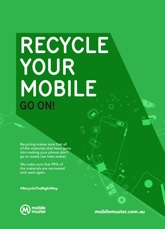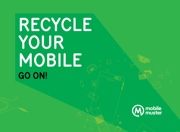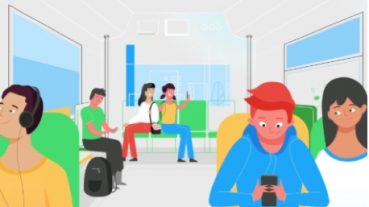Recycling for a deafblind person
MobileMuster Partners with Able Australia to Help Deafblind People Stay Connected Smartphones collected during the initiative will be donated to Able Australia to improve the digital literacy of the deafblind community. The phones will be used to educate people on how to use speech recognition and Braille readers via mobile technology.
Deafblindness is very much Australia’s forgotten disability. Able Australia tells us that nine out of ten deafblind people will experience depression and anxiety and the simple act of donating an unwanted phone is an easy way to show your support to Australia’s deafblind community. Unwanted smartphones play a vital link that can transform a socially isolated person with deafblindness into an active member of their local community. Something most of us take for granted.
Mobile technology can also help people with deafblindness participate in the workforce. A report by Deloitte Access Economics commissioned by the Australian Mobile Telecommunications Association (AMTA) found that mobile technology allows people with deafblindness to communicate, engage and interact, thereby improving their daily lives and opportunities to participate in the workforce (2).
Each smartphone will be checked to confirm it is working and any data left of the phone will be wiped to ensure privacy. Mobile Muster will also ensure that any mobiles and accessories that can’t be reused will be recycled by MobileMuster in a safe, secure and ethical way, with all data being destroyed in the recycling process.
Use the Able Australia mailing label and attach to your package containing old smartphones and chargers.
(1) Access Economics (2010), Making Sense: The economic impact of dual sensory impairment and multiple disabilities commission by Able Australia.
(2) Deloitte Access Economics (2016), Mobile nation: Driving workforce participation and productivity commissioned by the Australian Mobile Telecommunications Association (AMTA).






